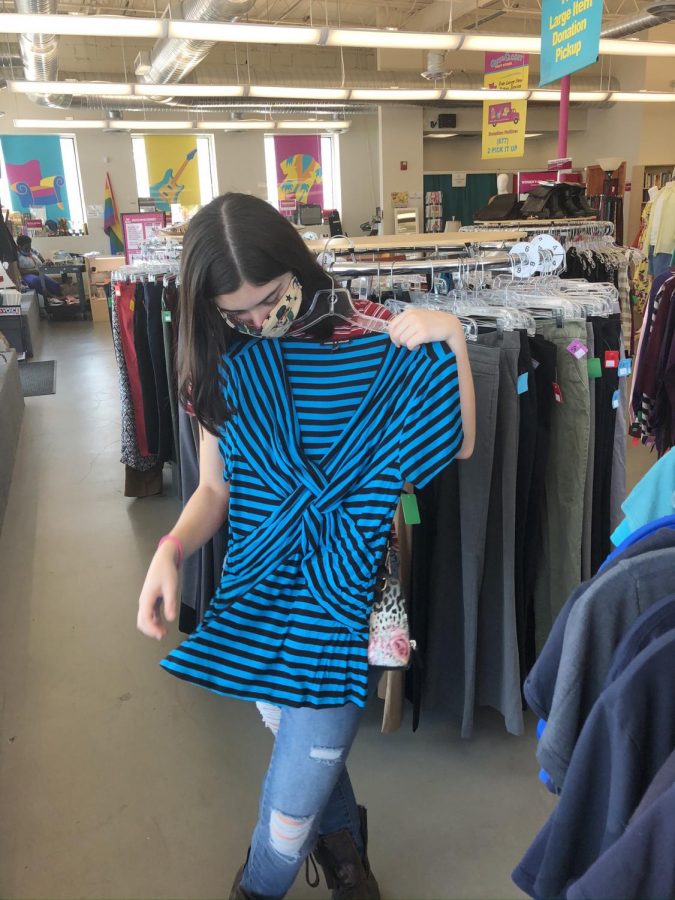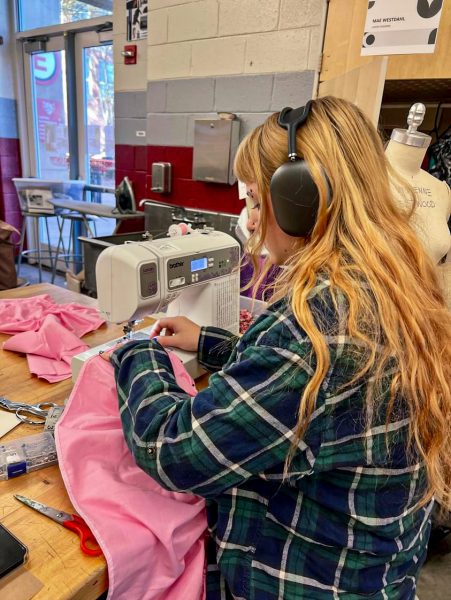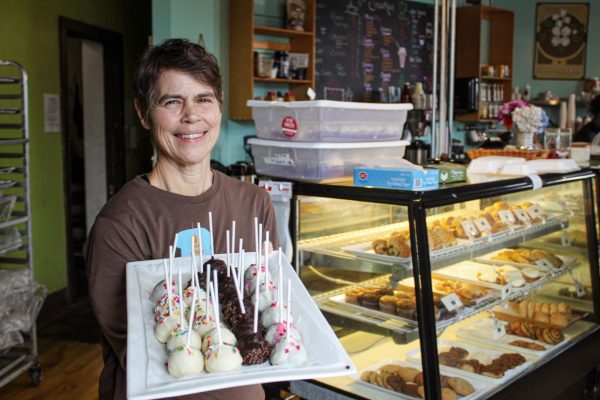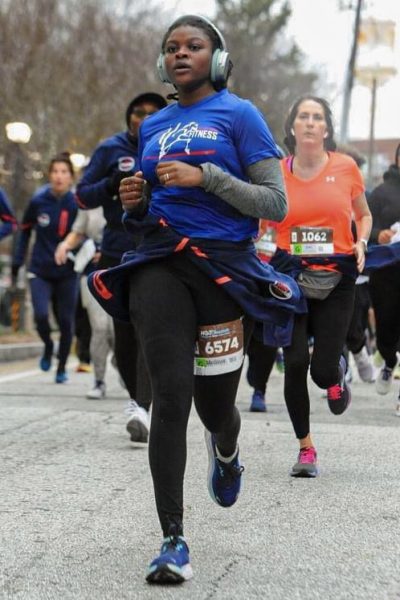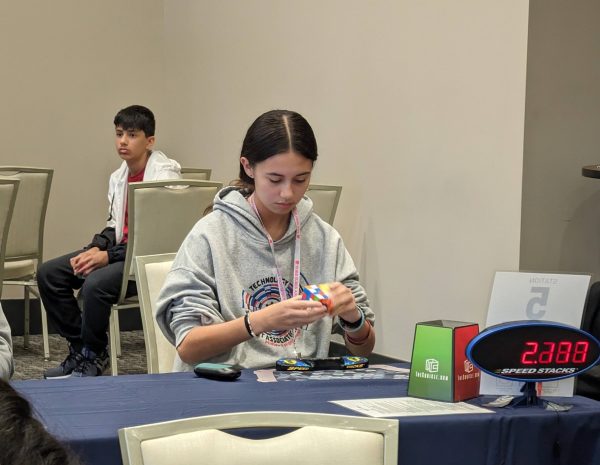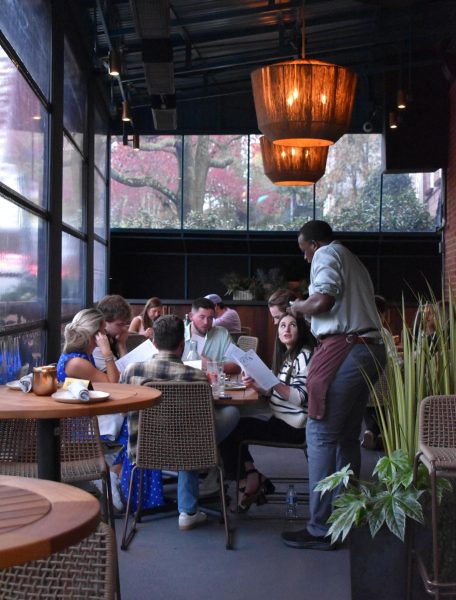New sustainable fashion club endorses ethical shopping alternatives
The fashion industry is the second-highest polluting industry worldwide.
According to the United Nations Conference on Trade and Development, the industry uses roughly 93 billion cubic meters of water annually, enough to meet the needs of five million people. Currently, the industry is accountable for 10 percent of carbon emissions.
Regardless, the fashion industry continues to expand. By 2050, the United Nations predicts the clothing industry’s greenhouse gasses will rise by approximately 50 percent.
Juniors Madeline Moye and Sophie Rice decided to take action by organizing a sustainable fashion club.
“Madeline and I are both really passionate about ways to shop sustainably,” Rice said. “We wanted to spread awareness about how unethical fast fashion is and promote ethical alternatives.”
Like Rice and Moye, Brooke Bowlin, owner of secondhand clothing businesses Secondhand Sustainability and Thrift 25, uses her platform to share the significance of sustainable fashion for the future. She describes her lifestyle as “all-in” and dedicated to buying and living sustainably.
“In the past, we have seen fast fashion, things that have been produced so quickly and so wastefully, and we can’t maintain that,” Bowlin said. “I wholeheartedly believe the future of fashion is sustainable.”
Bowlin stresses the need for everyone to make changes to their daily lives.
“We literally call them nonrenewable resources because we will not have them forever if we use them up,” Bowlin said. “It’s important to have sustainable fashion, so we’re being intentional about how we’re treating the earth we live on.”
Bowlin also notes the unethical treatment of workers as another negative consequence of fast fashion. She referenced the Rana Plaza fire that occurred in Bangladesh in 2013, injuring more than 2,500 garment factory workers.
“I think, for me, because that is where my priorities lie, the human element of fashion is the most important because we see garment workers and people who work in fashion are exploited,” Bowlin said. “What we have existing in our system is not humane.”
Bowlin believes the reason fast fashion companies continue to grow include a lack of knowledge, responsibility and initiative. Rice, on the other hand, wants to take initiative to help others educate themselves and those around them.
“We plan to hold clothing drives, show PowerPoints pertaining to sustainability and maybe go to the fashion room to use their sewing machines to upgrade clothing we already own,” Rice said.
Senior Trinity Lewis learned about the newly-formed club from social media, where she also first learned about the fast fashion industry. She no longer purchases from brands she used to shop from regularly.
“Now, my friends and I make regular trips to our favorite thrift shops and can spend hours looking through the clothes, thinking of ways to make them better for us and fit our style,” said Lewis.
Lewis enjoys shopping at thrift stores as an alternative to her old favorites. She often finds cheap items that are easy to customize and make into one of a kind pieces.
“I’ve picked up some hobbies like sewing and upcycling clothes,” Lewis said. “Sometimes I will paint them or bleach them in different ways. I’ll take men’s pants and make mom’s jeans. Just stuff like that to make them more specialized. I made this skirt out of these really large business pants.”
Similarly, engineering teacher Melissa Nunnink enjoys creating new pieces out of unused fabric, allowing her to explore her creative side, a skill that has been useful during the pandemic.
“All of my masks are upcycled,” said Nunnink. “I make them out of some spare fabrics I have and other than that, I use scraps of clothing.”
All in all, Bowlin wants to remind students that any effort to be more sustainable helps to create a better future.
“You can never start too early and never too small,” Bowlin said. “Just put in a little bit of time to start somewhere because ultimately, I believe we have so much responsibility and power to make a change, and it’s so important to challenge your favorite brands and push them towards making better decisions.”

Grace Langan is a junior, and this is her second year writing for The Southerner. This year she is excited to be the Lifestyle and A&E Section Editor....

